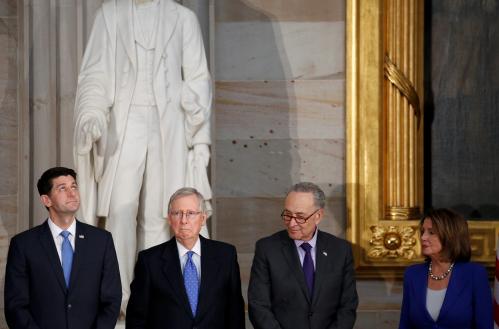The Federal Communications Commission’s December 14 vote to repeal net neutrality rules ended a period of deliberation marked by a record number of public comments on the agency’s website. It is unsurprising that the discussion of rules governing the treatment of online content would play out on the internet; given the spread of fake news on social media, it is also unsurprising that many of the comments used false or stolen identifying information. As citizens increasingly use digital tools to engage with government, federal agencies should weed out fake comments to create a more robust public comment system.
The current system of collecting public comments dates to the 1946 Administrative Procedure Act, which requires federal agencies in most cases to publish a notice of proposed rulemaking (NPRM) in the Federal Register before enacting new rules. The agency then allows time for public comments, typically 30 to 60 days, before it develops a final rule. Public comments add to the evidence from collected data and expert opinion that form the rulemaking record, and agencies may change or stop a rule if the record contains “persuasive new data or policy arguments, or poses difficult questions or criticisms.”
Importantly, agencies do not base their decisions on the number of comments arguing for or against a rule. To stand out from the crowd, a Regulations.gov fact sheet suggests that commenters identify personal or professional experience relevant to a proposed rule. It also encourages addressing a rule’s tradeoffs and opposing viewpoints, and suggesting alternatives in the case of disagreement. Overall, “a single, well-supported comment may carry more weight than a thousand form letters.” Repeating the same message adds no evidence for an agency considering a new rule.
Two ways to find fraud
If online form letters add little substance to the federal rulemaking process, then automated spam comments add even less. The Pew Research Center downloaded all FCC comments from the official comment period from April to August 2017, and found that only six percent of online comments used unique text. At the other extreme, they found the top five comments each repeated over 800,000 times. Such prolific posting can only happen with the help of software: on over 100 separate occasions, more than 25,000 copies of the same message posted instantaneously. Overall, 57 percent of comments contained addresses that either repeated between comments or came from disposable accounts.
Spammers not only generate fake identities to post comments, but also steal information from real people. A Wall Street Journal investigation sent surveys to commenters on several agency websites, and of 19,000 responses, 41 percent came from individuals who claimed to have never submitted comments. Many of these came from the FCC’s NPRM on repealing net neutrality rules, but others came from websites of the Department of Labor, the Consumer Financial Protection Bureau, and the Federal Energy Regulatory Commission. Agencies that consider controversial rules can now expect high volumes of public comments to sort through.
A better way to reach your bureaucrat
Before the internet, commenters either sent their opinion by mail or delivered it in person at a public hearing. These methods still allowed interest groups to launch form letter campaigns and send representatives to speak on their behalf, but at a much smaller scale. Digital communication allows far more engagement between the public and federal agencies, and the public notice and comment system is the most direct way for citizens to engage in the rulemaking process. However, a high number of false comments may lead agencies to discount public comments altogether. The same digital tools that empower concerned citizens also enables individuals and groups to flood the system with fabricated comments.
If agencies are required to solicit public input, it should take on a form that the agency can easy incorporate into new rules. The Administrative Procedures Act could not have anticipated the digital communications tools available to citizens seven decades later. An updated method of collecting feedback would require commenters to verify their identity, or at least verify they are human. Another approach would automate the search for the search for spam comments, pitting spam bots against spam filters. However, the filtering out of fraudulent comments should be used not discourage authentic commentary from interested individuals. Creating a universal, easy-to-use interface for public comments would increase participation without diminishing the quality of comments.
A vibrant democracy depends on the free flow of information between voters and their government. Just as voters need accurate information to decide on prospective candidates and ballot issues, government agencies need accurate feedback on how proposed rules might affect the public. Furthermore, public comments are one of the few ways that voters can register their opinions to executive branch outside of presidential elections. With a more secure online comments system, voters would feel more confident that agencies seriously consider their input.
The Brookings Institution is committed to quality, independence, and impact.
We are supported by a diverse array of funders. In line with our values and policies, each Brookings publication represents the sole views of its author(s).









Commentary
Net neutrality debate exposes weaknesses of public comment system
January 18, 2018